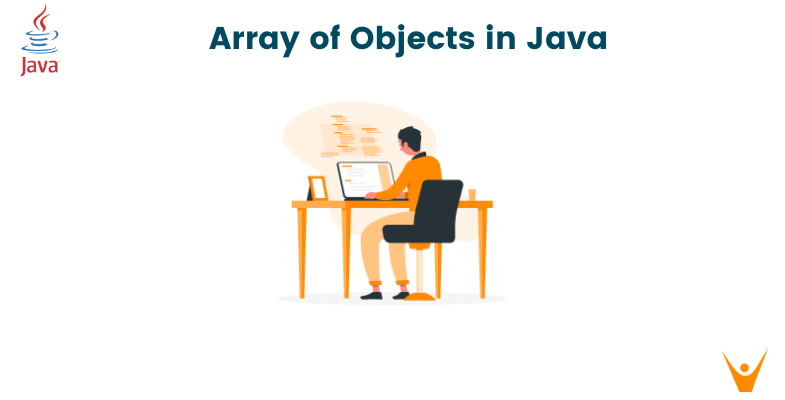Java offers various numeric types like int, double, float, etc., for handling numbers. However, these primitive types have limitations in representing precise decimal values, often resulting in rounding errors during arithmetic operations with decimal values. When dealing with financial or critical calculations where precision is paramount, Java's native numeric types might fall short. BigDecimal is introduced as a solution to handle such scenarios, allowing arbitrary precision arithmetic operations without losing accuracy.
What is BigDecimal?
BigDecimal in Java is a class specifically designed to perform precise arithmetic with decimal numbers. It offers an arbitrary precision, enabling developers to handle numbers with a large number of digits after the decimal point without losing accuracy. Unlike primitive types, BigDecimal represents numbers in decimal form, eliminating floating-point errors commonly encountered with other types.
BigDecimal is a Java class that provides arbitrary-precision decimal numbers. Unlike primitive numeric types, BigDecimal allows the representation of exact decimal numbers without loss of precision, enabling accurate calculations with large numbers or decimal fractions.
How to Create BigDecimal Objects?
To create BigDecimal objects, various constructors are available, allowing initialization from integers, strings, or using the BigDecimal constants like BigDecimal.ZERO, BigDecimal.ONE, and BigDecimal.TEN.
BigDecimal num1 = new BigDecimal("123.456"); // Initializing from a String BigDecimal num2 = BigDecimal.valueOf(987654321); // Initializing from a long value
These constructors ensure precise representation of decimal numbers without introducing rounding errors during initialization.
Arithmetic Operations and Methods in BigDecimal
BigDecimal offers methods for arithmetic operations such as addition, subtraction, multiplication, division, and more. These operations maintain precision, crucial for applications involving monetary calculations or scientific computations.
BigDecimal result = num1.add(num2); // Addition result = num1.multiply(num2); // Multiplication result = num1.divide(num2, 5, RoundingMode.HALF_UP); // Division with scale and rounding
Here, add, multiply, and divide some of the arithmetic methods available in BigDecimal that ensure accuracy by handling decimal calculations with precision.
Precision and Scale in BigDecimal
In BigDecimal, precision refers to the total number of significant digits in a number, while scale represents the number of digits after the decimal point. For instance, in the number 123.456, precision is 6 (total digits), and scale is 3 (digits after the decimal point).
Importance of Scale in Decimal Arithmetic
Scale plays a crucial role in decimal arithmetic as it determines the level of accuracy in calculations involving decimal fractions. Operations like division and rounding rely on scale to maintain precision.
When performing arithmetic operations with BigDecimal, it's essential to consider the scale to maintain accuracy. Methods like setScale allow developers to explicitly set the scale for division or rounding purposes.
BigDecimal dividend = new BigDecimal("10"); BigDecimal divisor = new BigDecimal("3"); BigDecimal result = dividend.divide(divisor, 5, RoundingMode.HALF_UP); result = result.setScale(2, RoundingMode.HALF_UP); // Setting scale after division
In this example, after performing division, the setScale method is used to adjust the scale to 2 decimal places, ensuring precision in the final result.
Comparing BigDecimal Objects
BigDecimal provides methods for comparing objects for equality, greater than, less than, etc., facilitating comparisons of decimal numbers with precision.
BigDecimal value1 = new BigDecimal("10.5"); BigDecimal value2 = new BigDecimal("5.75"); int comparison = value1.compareTo(value2); // Compare values boolean isEqual = value1.equals(value2); // Check for equality
These methods allow developers to compare BigDecimal objects accurately, ensuring precise comparisons of decimal numbers.
Formatting and Displaying BigDecimal Values
BigDecimal offers formatting options for displaying decimal values in different formats, including scientific notation, fixed-point notation, or specifying decimal places.
BigDecimal value = new BigDecimal("12345.6789"); String formattedString = value.toString(); // Convert to String String scientificNotation = value.toEngineeringString(); // Engineering notation String fixedPointNotation = value.setScale(2, RoundingMode.HALF_UP).toString(); // Fixed point notation with 2 decimal places
These formatting options provide flexibility in presenting BigDecimal values based on specific formatting requirements.
Common Errors in BigDecimal
When working with BigDecimal, common pitfalls include improper initialization, incorrect scale handling, or forgetting to specify rounding modes in division operations. These can lead to unexpected results or precision issues.
BigDecimal number = new BigDecimal(0.1); // Improper initialization from double BigDecimal result = number.multiply(new BigDecimal("3")); // Unexpected precision loss
Awareness of such pitfalls helps developers avoid errors and maintain precision in BigDecimal operations.
Conclusion
BigDecimal stands as a crucial Java class, offering arbitrary-precision arithmetic for accurate decimal calculations. Throughout this article, we delved into its significance, characteristics, operations, best practices, and real-world applications. By providing precise representations of decimal numbers without rounding errors, BigDecimal becomes indispensable in scenarios demanding exactness in arithmetic operations. Its ability to handle large numbers, decimal fractions, and maintain precision makes it an essential tool for financial, scientific, and engineering computations.








